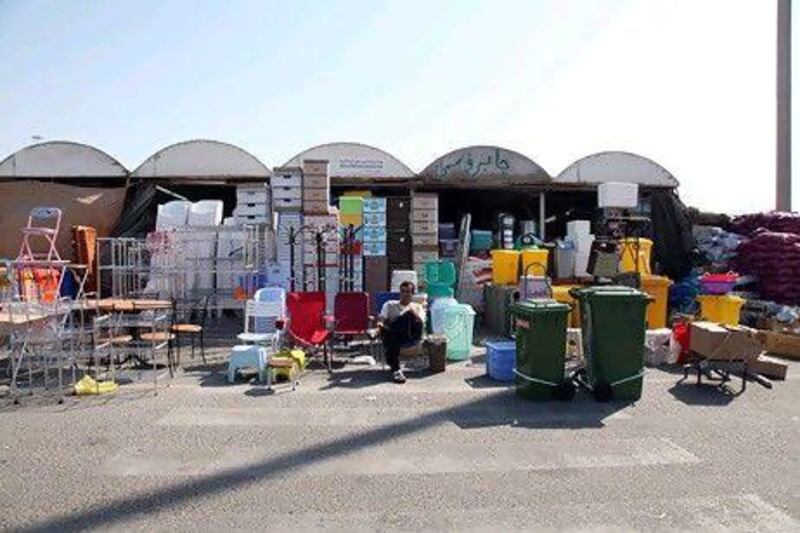It once bustled with the sound of traders and customers haggling over everything from Persian rugs to pistachio nuts. Today, the quayside building at the Iranian Souq in the capital is mostly abandoned, with graffiti on the walls. Most of the vendors who have operated in Abu Dhabi for years have returned to Iran after failing to get renewals of the visas they need to sell their wares.
Shopaholics:
Industry Insights Get the scoop on what's happening in the retail world. Learn More
The majority of the traders visit the country on 21-day visas and pay a fee of 5 per cent of the value of their goods to Abu Dhabi Customs. In return, they receive a stall to display their goods at no additional charge. The few traders who remain are mostly Iranian businessmen who have teamed up with local sponsors and have resident visas.
"Only a few months ago, this place was so busy that it would be hard for customers to walk between the stalls and items on display," said Reza Mohamed, an Iranian who has sold pots from his stall at the port for more than a decade. "The traders, who used to come on a 21-day visa to capitalise on tourists to the city are coming far less often."
Iranian businesses worldwide are under increasing pressure as a result of growing western pressure on the country to halt its nuclear programme. The EU last year imposed asset freezes and travel bans on Iranian individuals and entities involved in the country's nuclear programme and on the country's shipping lines. In the US, officials last year imposed sanctions on several Iranian state banks, as well as international financial institutions that deal with the country's central bank.
Tension over Iran has sent oil to an eight-month high. Tehran has warned it will stop the flow of crude through the Strait of Hormuz if sanctions are imposed on its own oil exports. The strait is the world's most important oil route. New York-traded crude gained more than US$4 to $102.96 a barrel yesterday.
At the Iranian Souq, not all the traders have returned home. Ahmed Ghulam Abbas, who sells pots and pans and other household goods, has partnered with a UAE national and so does not rely on a short-term visa to stay in the country. Still, his business has been affected by wild fluctuations between Iran's currency and the UAE dirham, which is pegged to the US dollar.
Iran's rial surged a cumulative 21 per cent from the start of trading on Tuesday to the close yesterday after the country's central bank intervened to halt a steep decline amid increased US economic sanctions. The rial dropped 12 per cent on Monday. It traded at 14,000 to the dollar yesterday.
An official at Abu Dhabi Terminal in Port Zayed said many Iranian traders had overstayed and so had not been allowed to continue trading.
"We have run into problems," said Mustapha Ali, a manager at the terminal. "Many of them exceed the 21 days in an effort to sell more, or try to sell more of their products outside the souq, which is illegal.."
twitter: Follow our breaking business news and retweet to your followers. Follow us





